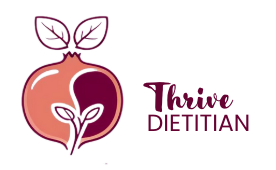How Dietetics Can Help Manage Endometriosis
Living with endometriosis can be exhausting. Pain, fatigue, bloating, and digestive issues often get in the way of daily life. While there’s no cure, research shows that diet and lifestyle changes can play a big role in helping manage symptoms and improving quality of life.
That’s where working with a dietitian for endometriosis can make a real difference.
The link between diet and endometriosis
Endometriosis is a condition where tissue similar to the lining of the uterus grows outside it, leading to inflammation and pain. Because inflammation, hormones, and gut health all play a part in how symptoms show up, diet can be a powerful tool in symptom management.
How dietitians help with endometriosis
1. Reducing inflammation
Certain foods can help calm inflammation in the body. Dietitians often guide people with endometriosis toward an anti-inflammatory style of eating that includes:
Plenty of colourful vegetables and fruits
Healthy fats (like olive oil, avocado, nuts, and oily fish)
Whole grains and plant-based proteins
At the same time, they may help you reduce foods that can worsen inflammation, such as highly processed foods, excess sugar, or too much red meat.
2. Supporting hormone balance
Endometriosis is influenced by estrogen, so nutrition strategies that support hormone balance can help. This might include increasing fibre (to help the body clear excess estrogen) and focusing on plant foods rich in phytoestrogens, which may have a balancing effect.
3. Easing digestive symptoms
Many people with endometriosis also experience bloating, constipation, or IBS-like symptoms. A dietitian can help you identify food triggers—such as certain types of FODMAPs—while making sure your diet still covers all your nutritional needs.
4. Preventing nutrient deficiencies
Because of heavy periods and inflammation, women with endometriosis are at higher risk of deficiencies in nutrients like iron, vitamin D, and omega-3s. Dietitians help ensure you’re meeting these needs through food (and supplements if required).
5. Tailored, practical support
No two people experience endometriosis the same way. A dietitian provides personalised advice—from meal planning ideas to grocery shopping tips—so you can make changes that actually fit your lifestyle.
Why choose our clinic?
At our clinic, we understand the daily challenges of living with endometriosis. Our dietitians have experience supporting women with this condition, helping them reduce pain, improve energy, and feel more in control of their health. We combine evidence-based strategies with compassionate care—because your nutrition plan should support both your body and your lifestyle.
The bottom line
While diet can’t cure endometriosis, the right nutrition can make a big difference in managing symptoms, improving energy, and supporting overall health.


